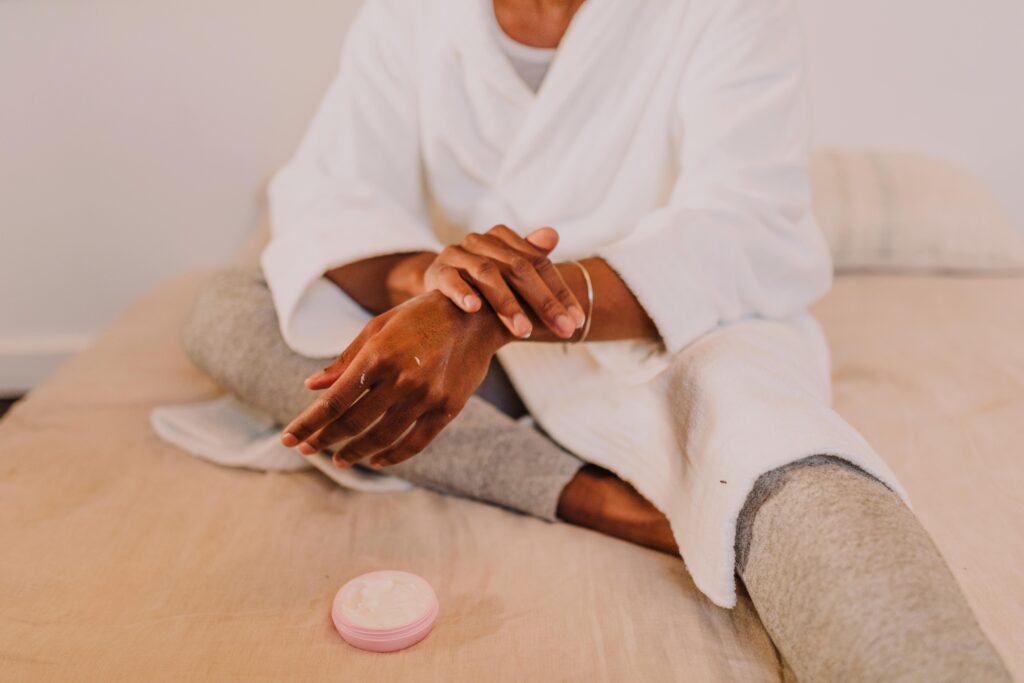
You’ve carved out time for a massage, but you spend the entire session mentally running through your to-do list. You finally get that manicure you’ve been promising yourself, only to leave the salon feeling more triggered than when you walked in because you spent the whole time scrolling through stressful emails. Sound familiar?
If your self-care routine isn’t actually making you feel better-or worse, if it’s adding to your overwhelm-you’re not alone. And more importantly, you’re not broken. There’s a deeper reason why traditional self-care approaches often fail exhausted mothers, and it has everything to do with what’s happening beneath the surface.
The Unconscious Programming Running Your Life
Here’s something that might surprise you: 90-95% of your life is being driven by unconscious programming. These are the deeply rooted patterns of thinking, feeling, and behaving that have been shaped by both your genetics and your environment-your family, culture, and society.
As Carl Jung famously said, “Until you make the unconscious conscious, it will direct your life and you will call it fate.” When we’re unaware of this programming, we find ourselves stuck in the same cycles, wondering why we can’t break free from patterns that aren’t serving us.
The good news? Understanding this reality is actually permission-giving and compassion-inducing. You can stop blaming yourself for being “stuck” and start recognizing that lasting change requires working with your nervous system, not against it.
Self-Care vs. Selves-Care: The Missing Piece
Traditional self-care focuses on the doing-the spa days, manicures, solo walks, and weekend retreats. And while these activities can be genuinely nourishing, they’re not addressing the root cause of why you feel depleted in the first place.
You can be sitting in a massage chair getting a pedicure while simultaneously checking your email, fielding texts about childcare falling through, and mentally berating yourself for “wasting time” on self-care. The action is self-care, but the internal experience is anything but caring.
This is why I’ve coined the term “selves-care”-because we need to tend to the inner parts of ourselves that are actually creating our stress, anxiety, and overwhelm. These parts are often rooted in survival states in our nervous system, and they’ll continue operating from that place until they feel safe.
Why Your Nervous System Sabotages Your Self-Care
When parts of you are stuck in survival mode-whether that’s anxiety, shame, perfectionism, or people-pleasing-they’re doing an important job: keeping you alive. From their perspective, relaxing, receiving, or truly letting go feels dangerous.
So even when you’re physically engaged in self-care activities, these protective parts remain vigilant. They’re the reason you:
- Can’t stop thinking about work during your massage
- Feel guilty for taking time for yourself
- Ruminate about everything you “should” be doing instead
- Judge yourself for needing care in the first place
Until these parts feel safe enough to relax their guard, surface-level self-care will continue to feel ineffective or even overwhelming.
The Deeper Work That Actually Works
Instead of focusing solely on what you’re doing for self-care, try getting curious about who is present when you’re doing it. What parts of you are online? What do they actually need?
When you tune into your anxiety, it might not need a high-intensity workout-it might need to be witnessed and understood. When you connect with your shame, it might not need another productivity hack-it might need to hear how worthy and incredible you are. When you check in with your exhausted body, it might not need another active adventure-it might need rest and stillness.
This is the transformational work: learning to identify these inner parts, understand their needs, and provide what they’re actually asking for rather than what we think they should want.
Moving Beyond Band-Aid Solutions
I’m not suggesting you abandon all traditional self-care practices. A solo walk can be incredibly nourishing and is personally, one of my favorite go-to’s. Yet, it’s only nourishing when you’re present for it rather than mentally rehearsing difficult conversations. A spa day can be rejuvenating – if you’re able to receive the care rather than feeling guilty about it.
But if you’re finding that your self-care isn’t working, it’s time to look under the hood that is you. The real work involves:
- Awareness: Recognizing when you’re operating from unconscious programming
- Pause: Creating space between trigger and reaction
- Inquiry: Getting curious about what parts of you are activated and what they need
- Rewiring: Practicing new neural pathways that support your wellbeing
The Truth About Sustainable Change
Here’s the reality: trying to make more time for yourself is wonderful, but spending dedicated time understanding the parts of you that get in the way of making that time, or enjoying it when you do, is the deeper work that creates lasting transformation.
You might not be ready for this level of inner work right now, and that’s completely okay. Sometimes we need to hear about something many times before we’re ready to act on it. But I invite you to ask yourself: Is my current self-care actually working for me? Am I doing anything consistently that truly recharges me? And if not, what might be ready to shift?
The path to feeling good in your body and your life isn’t through doing more self-care, it’s through understanding the unconscious patterns that drive your stress in the first place. When you address the root cause rather than just the symptoms, you’ll find that self-care becomes less about forcing yourself to relax and more about naturally creating space for what you actually need.
And that’s when real transformation becomes possible.
+ show Comments
- Hide Comments
add a comment